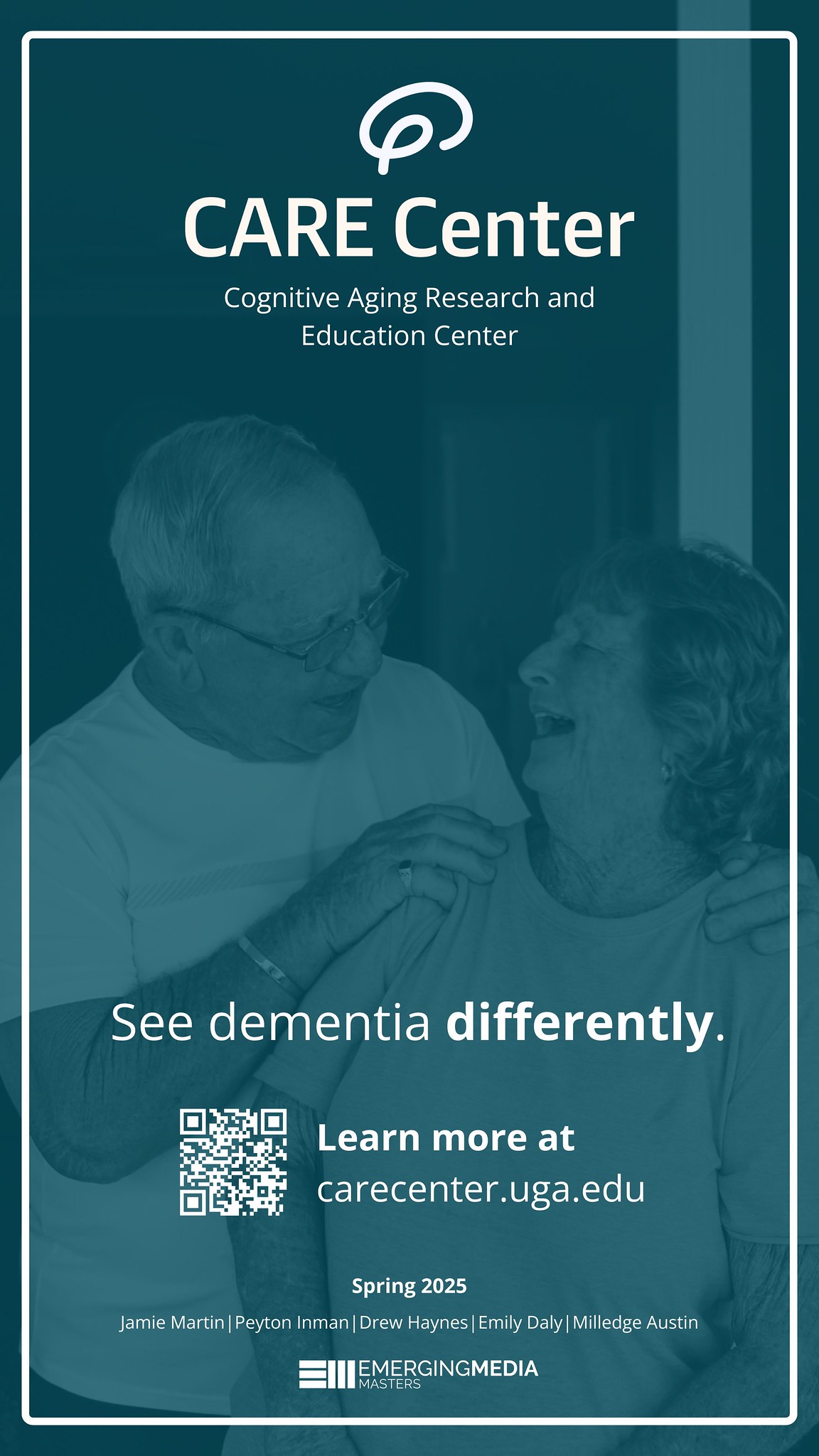CARE
There will be 190,000 Alzheimer’s Disease and Related Dementias (ADRD) cases by 2025, according to the Georgia Department of Public Health. As these numbers rise, the need for access to education, diagnosis, and support grows, especially in rural communities where these resources are scarce. The Cognitive Aging Research and Education (CARE) Center at the University of Georgia ensures that everyone in the state, including rural Georgians, has access to ADRD education, diagnosis, caregiving, and support. CARE knows that the best way to do so is with a strong digital footprint.
CARE’s goal is to reach all Georgians through these three avenues:
- First, updating CARE’s website as the all-in-one platform for information on brain health and ADRD, with an intuitive design that guides users through CARE’s different areas of expertise and services. With a focus on bringing forth the news and calendar tools, CARE highlights events like Music Therapy, Meet Me at the Garden, and rural site visits.
- Second, creating a CAREtaker video series to add to the CARE library. Drawing directly from CARE’s official research, CARE builds a series about best practices, self-care, and testimonials as tools for ADRD caretakers.
- Third, launching and developing CARE’s social media presence, with a special emphasis on reaching rural Georgians. This content is informational, inspiring, and inviting. CARE’s social media includes CARE resources, rural site visits, in-house events, as well as testimonials from patients, caretakers, and faculty.
The CARE Center is a beacon of support and knowledge for Georgians going through a daunting and uncertain time, all the while reiterating and supporting the central message of the CARE Center: Seeing Dementia Differently.

